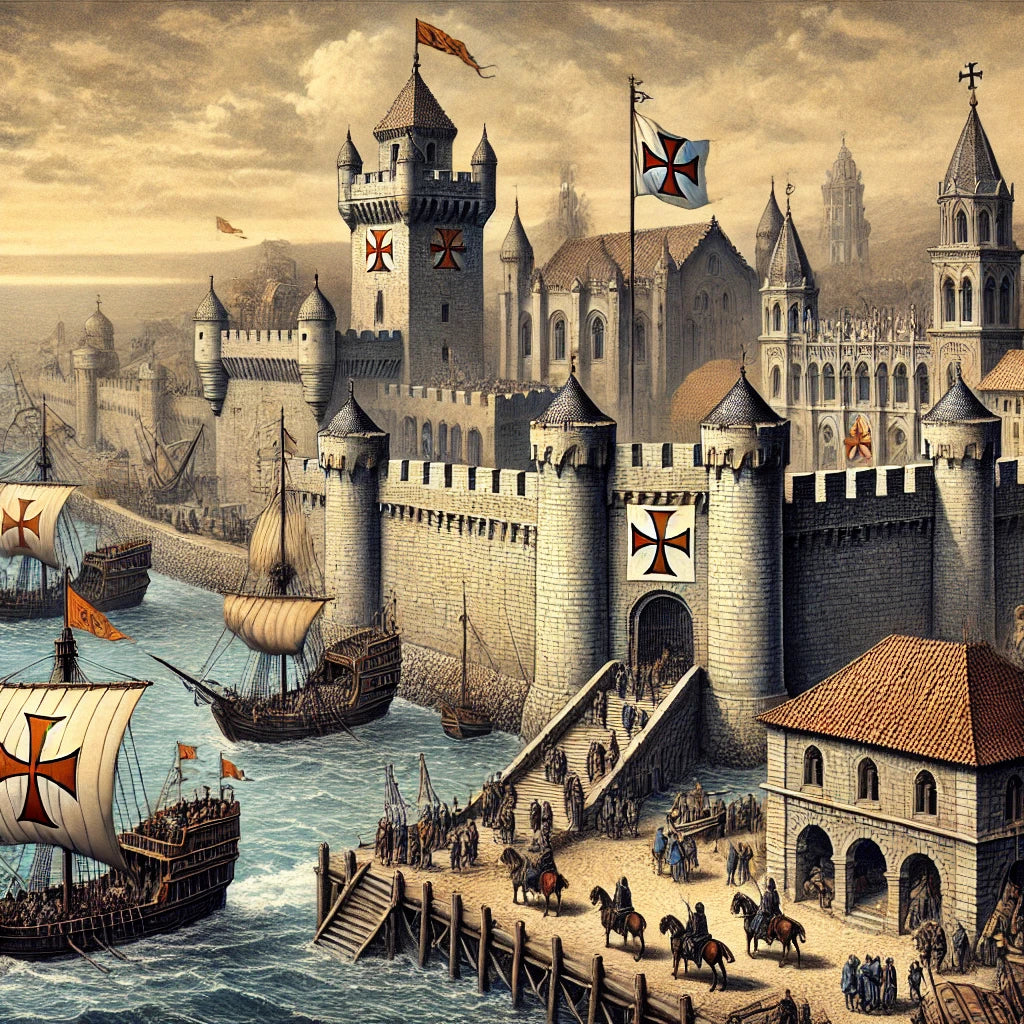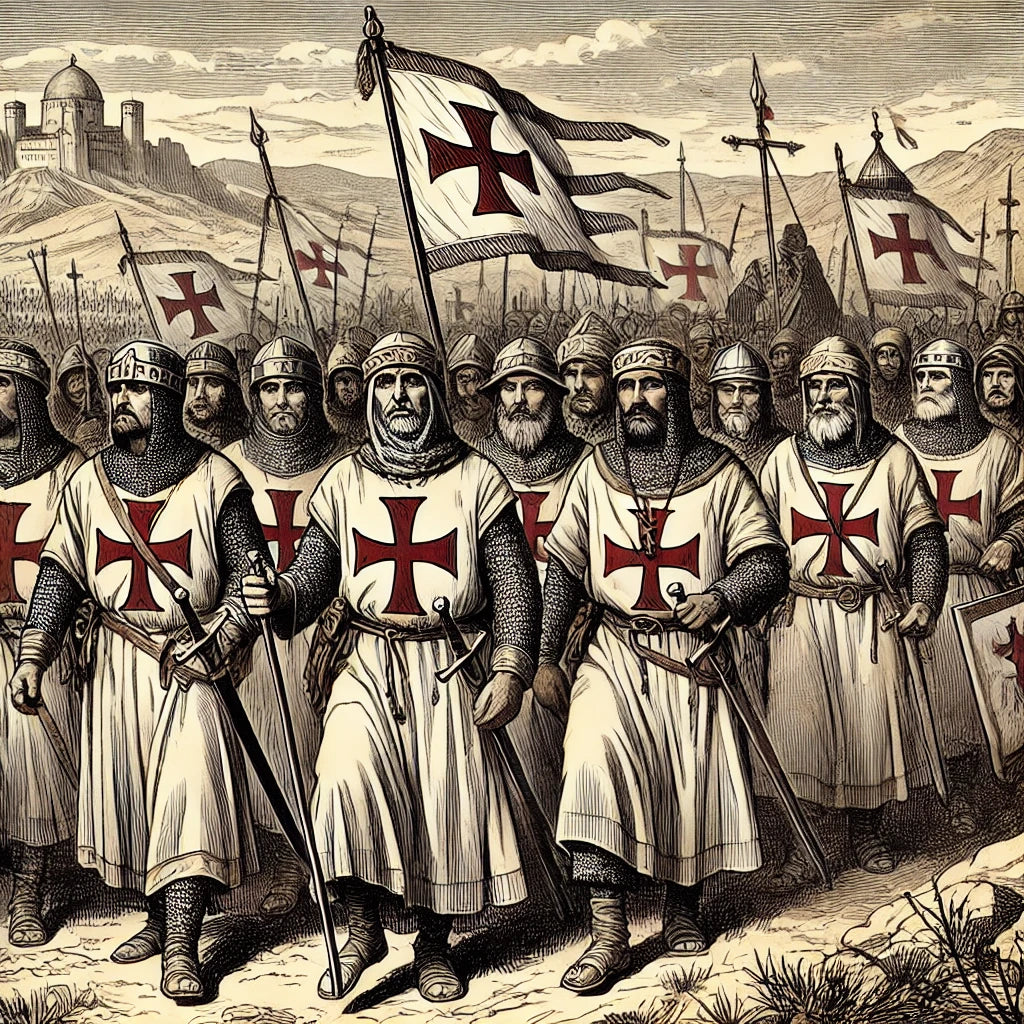The Education of Knights Templar: How Their Children Were Raised to Become Warriors of Faith
The Knights Templar are best known as a medieval military order, sworn to protect Christian pilgrims and defend the Holy Land. However, beyond their military prowess and religious dedication lies a lesser-known aspect of their lives: the education and upbringing of their young recruits. The children of noble families who joined the ranks of the Knights Templar were raised in a unique environment where religious devotion, military training, and the ideals of chivalry were instilled from a young age.
Noble Beginnings: The Path to Knighthood
The majority of children who joined the Knights Templar came from noble families. These boys were often sent to the Templars at a young age, typically between the ages of 7 and 14. Their noble lineage meant that they were destined for lives of leadership, duty, and service. The Templars provided an environment where these boys could be trained to become not only skilled warriors but also devout Christians committed to their faith.
The journey from childhood to knighthood was a long and rigorous one. Boys were expected to learn and embody the values of discipline, loyalty, and religious piety. The Templars believed that these values were the foundation of a true knight, and they were instilled in the children from the very beginning.
Religious Instruction: The Core of Templar Education
As a religious order, the Knights Templar placed great emphasis on the spiritual education of their young recruits. Children were taught the principles of Christianity, including prayer, devotion, and the teachings of the Bible. Religious instruction was a daily practice, as the Templars believed that a strong connection to God was essential for their mission as warrior monks.
Boys learned the importance of following the strict religious observances of the order, including prayer sessions, fasting, and attending mass. These practices were designed to shape their moral character and strengthen their commitment to the Christian cause. By the time they reached adulthood, these young men were expected to have a deep and unwavering faith that would guide them in both their military and religious duties.
Martial Training: Preparing for the Battlefield
In addition to religious instruction, the education of future Templar knights involved rigorous martial training. From an early age, boys were taught the art of combat, learning to wield swords, shields, and spears. Horsemanship was another critical skill, as knights were expected to fight on horseback, often in the heat of battle. Archery, swordsmanship, and the use of various medieval weapons were all part of their training regimen.
Physical fitness and endurance were essential for survival on the battlefield. Boys were subjected to grueling physical exercises, ensuring they were strong, agile, and prepared for the challenges of combat. Military strategy was also an important aspect of their education. As future knights, they needed to understand battlefield tactics, leadership, and how to coordinate with fellow soldiers during complex military campaigns.
This martial training was designed not only to produce skilled fighters but also to cultivate discipline, bravery, and resilience in the face of danger.
Chivalry and Ethics: Shaping Character and Morality
While martial skills were crucial, the education of a Templar knight went beyond physical training. The Templars emphasized the values of chivalry, honor, and duty. These ideals were deeply ingrained in the children from a young age, teaching them to live by a code of conduct that reflected their noble heritage and Christian faith.
Chivalric values such as loyalty to one's comrades, respect for women, and compassion for the weak were core principles in the education of Templar knights. These values guided their behavior both on and off the battlefield, shaping them into ethical leaders who were expected to act with integrity, courage, and selflessness.
The concept of duty was central to Templar life. Boys learned that they had a responsibility to protect the Christian faith, defend the innocent, and uphold justice. This sense of duty extended beyond their military role to include care for the sick and wounded, as the Templars were also involved in operating hospitals and caring for pilgrims.
Mentorship and Squirehood: Learning by Example
A key aspect of Templar education was mentorship. Young boys often served as squires to experienced knights, observing their daily routines and assisting them with various tasks. This hands-on experience allowed the boys to learn by example, absorbing the skills, values, and knowledge needed to become a knight.
Squires were responsible for tending to the needs of their knights, such as maintaining their armor and weapons, assisting with horses, and providing support during battles. In return, the knights served as role models, demonstrating what it meant to live as a true Templar knight—devoted to God, skilled in combat, and committed to chivalric ideals.
Through this mentorship system, boys were gradually introduced to the responsibilities and challenges of knighthood. By the time they were ready to be knighted themselves, they had gained valuable experience and learned the necessary skills to serve as effective and honorable warriors.
Intellectual Education: Beyond Combat
Though the primary focus of Templar education was on religious devotion and military training, intellectual pursuits were not entirely neglected. Some knights were trained in administration, governance, and legal matters. As the Templars controlled vast estates and managed significant financial resources, knowledge of economics, trade, and diplomacy was essential for the leadership of the order.
Templar knights were often called upon to act as administrators, overseeing the day-to-day operations of the order's estates and finances. This required them to be well-versed in medieval law, accounting, and estate management. While this intellectual education was less emphasized than martial training, it played a crucial role in preparing future leaders to manage the vast network of Templar holdings.
The Path to Knighthood
The culmination of a Templar's education was the knighting ceremony. By this point, the young recruits had undergone years of training, both physically and spiritually. The ceremony was a solemn and significant event, symbolizing the boy's transition into full knighthood. It marked the end of his education and the beginning of his life as a sworn defender of the Christian faith.
Once knighted, the young man became a fully-fledged member of the Templar order, bound by vows of poverty, chastity, and obedience. He was expected to dedicate his life to serving God and protecting the Church, whether on the battlefield or through other duties assigned by the order.
Conclusion: A Life of Service and Devotion
The education and upbringing of Templar children were designed to create warriors who were as devout in their faith as they were skilled in combat. Through a combination of religious instruction, martial training, chivalric values, and mentorship, the Knights Templar prepared their young recruits to take on the mantle of knighthood with honor and dedication.
By raising their children in this unique environment, the Templars ensured that the next generation would continue their legacy as defenders of the faith, protectors of pilgrims, and leaders in the Christian world.




